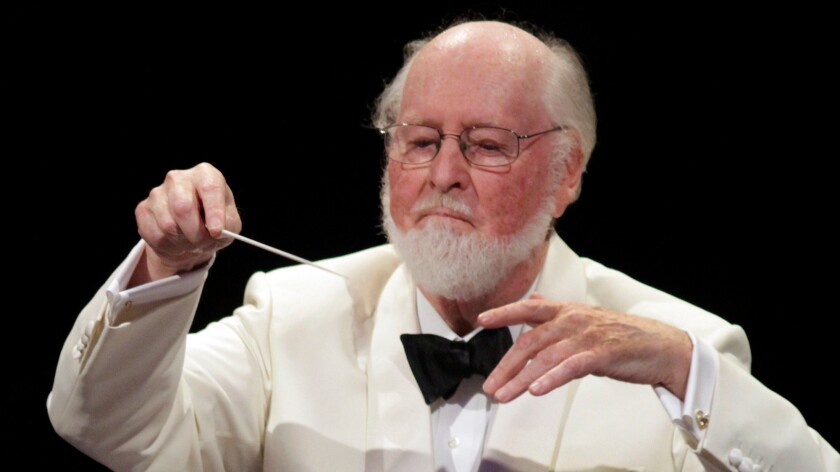John Williams has been writing music for 80 years now, so this must be easy for him.
Or not. “There’s rarely a moment (when) I have said, ‘Eureka, this is exactly right,’” he said.
Consider the five “Close Encounters” notes, which seemed just right for communicating with aliens: “I wrote about 300 examples,” Williams (shown here) told the Television Critics Association.
His Zoom call was to promote a big-deal classical-music event: At 9 p.m. Friday (Nov. 12), PBS’ has Anne-Sophie Mutter and the Boston Symphony with, as “Great Performances” producer David Horn put it, “the debut of a violin concerto by legendary composer John Williams.”
Williams, 89, said all the right things about the orchestra, the soloist and Tanglewood, the venue for the concert. “It is one of the wonders of American musical life. It is a pretty magical place.”
But the conversation soon drifted to movies and to Williams’ consummate patron, Steven Spielberg.
“If he has a 90-minute film, he would like to have a 95-minute score,” Williams said, exaggerating a tad. “You can’t get enough music to satisfy him. So he’s a perfect collaborator to work with me.”
They’ve linked on about 30 movies, including “Jaws,” “Close Encounters,” “Saving Private Ryan,” the Indiana Jones films and “ET,” Williams favorite. “I love the film,” he said.” I think (it’s) kind of a masterpiece …. That was one of my great pleasures, doing that film.”
Working with Spielberg, Williams has written massive music … and minimal music. For “Jaws,” he needed only two notes to depict the shark; for “Close Encounters,” Spielberg wanted five.
“I said, ‘If we could write seven tones, it would be more like a melody; two tones would be more like a doorbell.’” But this needed five; after 300-or-so possibilities, “I said to Steven, ‘This is probably as far as I can go.’”
The two work so perfectly that we might forget that Williams works for other directors – lots of them. He’s done “Home Alone” films, Harry Potter films, “Star Wars” films and more. By the time he scored Spielberg’s 1974 movie debut, “Sugarland Express,” he was in his 40s, with an Academy Award (for adapting “Fiddler on the Roof”) and seven more nominations.
Williams had grown up in Queens, where he started writing music at 9 or 10. He moved to Hollywood with his family as a teen and eventually juggled three genres.
He was a classical pianist, trained at Juilliard and Eastman … and a jazz pianist, using the same name (Johnny Williams) as his dad, who was a jazz percussionist … and a soundtrack pianist. You can hear him on anything from “Gilligan’s Island” to the original “West Side Story” musical.
Then he began composing the background music. Spielberg has said a film comes alive for him once the music is added; Williams finds that reasonable. “Even in the silent days, (films) had a piano or organ or a trio or whatever,” he said. “It is part of the language” of movies.
Still, he also enjoys sometimes ignoring movies. Then he’s “free from all of those very confining, arithmetic requirements of what has to be put into film …. I can find freedom to write what a I like.”
This idea started with Mutter, 58, the German violinist who has won four Grammies. Williams – who has won 25, trailing only George Solti (31) and four others – worked on it for a year.
He was writing for a favorite instrument (“we all love the violin; it has the greatest range), soloist and setting. He’s conducted often at Tanglewood, especially in the 13 years when he led the Boston Pops.
For that matter, he also wrote the theme music for “Great Performances.” If you write for 80 years, you can build up a pretty good resume.
